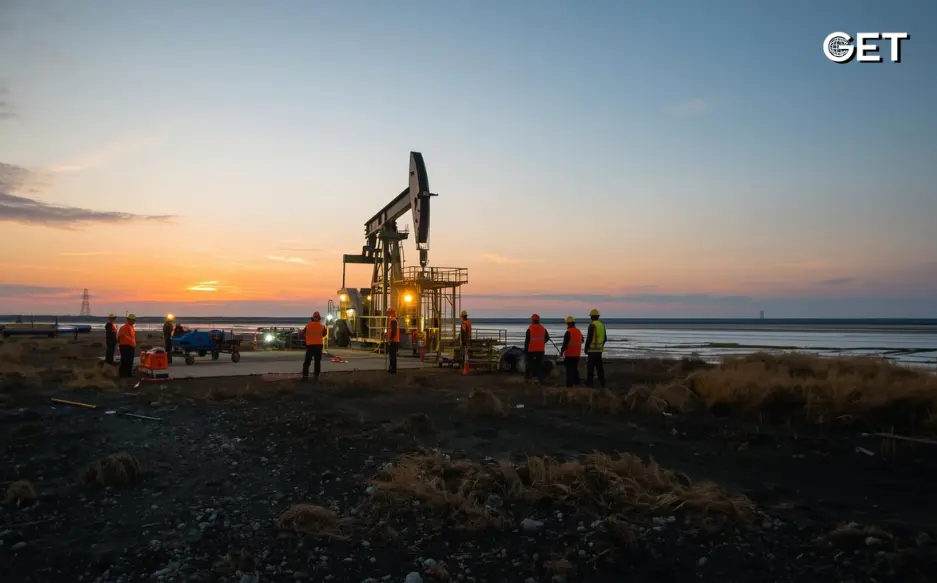
The oil and gas sector has remained a backbone industry of the global economy for a couple of centuries. Career opportunities in this industry range from one extreme of activities such as exploration, drilling, refining, and distribution to another extreme where all professional skills and backgrounds are put to use. Whether you are fresh out of university or changing careers altogether, the industry rewards the talented with good pay, opportunities for international movement, and a challenging but rewarding atmosphere.
Getting the first job in oil and gas, however, is not that straightforward. The competition is stiff, and employers look for candidates who possess an aptitude for technical skills but are also adaptable, safety-aware, and willing to work under fluctuating conditions.
If you are contemplating entering such a powerful industry, here are five tips that will be essential for making a start in your career in oil and gas.
1. Get an Understanding of Industry Landscape
Before applying for roles, it is critical to understand the structure and scope of the oil and gas industry. This sector can be roughly categorized into three streams.
· Upstream; to exploration, drilling, and production.
· Midstream; all about the transportation and storage of oil and gas.
· Downstream; refining and selling the finished product.
Knowing where your interests lie and where your strengths are would help you to narrow the types of roles that would interest you. If you are into geology or field operations, then probably upstream is for you. If you favor logistics or chemical engineering, you might be reasonably suited for downstream or midstream.
Ensure you read industry news, follow big-time players, and keep tabs on technology being adapted such as digital oilfields, renewable integrations, and enhanced oil recovery techniques.
2. Pick Right Educational Pathway
Though no degree is foolproof for getting into oil and gas, some qualifications will put you in good stead with recruiters. Such engineers as mechanical, petroleum, chemical, electrical, and civil are in high demand. But so are geologists, environmental scientists, safety officers, finance persons, and IT professionals.
Data analytics, automation, and AI have gained immense appreciation, mainly due to their applications in predictive maintenance, reservoir simulation, or asset management, in recent times.
Certifications like NEBOSH for safety persons, IWCF for drilling-related jobs, and PMP for project managers will give your CV an edge.
3. Acquire Hands-on Experience Early
Theoretical knowledge is vitally important, but the oil and gas industry very much thrives on the actualized real-life practice. Internships, field training, or apprenticeships, the type of exposure classroom learning has never offered.
While a student or fresh graduate, look for internship opportunities from any oilfield service companies, refineries, or even small exploration companies. Even short periods of these activities being unpaid would show your commitment or willingness to learn.
One of the very valuable ways is to be associated with a student chapter of such organizations as SPE (Society of Petroleum Engineers), AAPG (American Association of Petroleum Geologists), or IADC (International Association of Drilling Contractors). These platforms usually organize training, workshops, seminars, and conferences, and even networking opportunities.
4. Create a Strong Professional Network
In industries as oil and gas, sometimes who you know is as important as what you know. Attend to and join in the industry-specific events, webinars, and technical conferences. Reach out to those professionals on LinkedIn working in those companies you hold dear to your heart or those specific roles.
But networking does not mean soliciting for a job suddenly. It’s rather than that, you are learning from the experiences of others. You ask your questions, engage with the content they share, and build true connections over some time. Most of the time, this will open doors that applications alone cannot.
Don’t ignore a powerfully written LinkedIn profile too because recruiters are less busy scouting candidates online. Include some key courses, certifications, volunteer experience, or achievements you have in relation to the industry. Hence, a strong profile would become silent advocacy for your candidacy.
5. Stay Open to Challenging Locations and Roles
Face it; oil and gas jobs are definitely not your conventional 9 to 5 desk jobs. Most entry-level jobs, especially those concerning upstream, require long stretches in remote locations, on offshore rigs, or in rotational shifts. But this is where the real learning takes place.
There’s also that important benefit of keeping your doors open for opportunities because it indeed fast-tracks one’s learning curve as well as builds one’s resilience and adaptability, which are prized characteristics in the industry. Believe it. The candidates who have “done their time” in the field will be fast-tracked later into those leadership roles.
Well, being globally flexible in this industry means ready to assignment in countries such as the UAE, Norway, Canada, Nigeria, or Brazil. These are rich mulled professional experience and are also great rewards financially.
Coming into the oil and gas industry could be a hard act at first. Still, with a necessary blend of technical know-how, hand-on practical exposure, and professional contacts, any aspirant can enter the field. The industry never stops changing; it is now into sustainability, digitalization, and new energy paradigms—changing everyday scenarios and bringing new roles with them, exciting career pathways every year.
So, whether you’re dreaming of working on a high-tech offshore rig or leading ESG initiatives for a global energy major, the opportunities are out there. Equip yourself with the right tools, stay curious, and be ready to seize the moment.
Your future in the oil and gas industry might just be a few steps away.
Read Also- Climbing the Ranks: Career Growth for Crew Members in the Upstream Oil and Gas Industry

By Get global | January 27, 2026
The oil and gas industry operates under unpredictable conditions which make it difficult for projects to succeed. When something goes wrong, it goes wrong fast. The situation develops into dangerous conditions which result in multiple fires, injuries, shutdowns and environmental damage that lasts for many years. The oil and gas […]

By Get global | January 20, 2026
In 2026, the oil and gas landscape is no longer just about “steel and soil”. It’s about data, decarbonization, and digital fluency. For professionals in the upstream oil and gas sector and beyond, the career ladder has been replaced by a high-tech elevator and technical training courses are the floor […]

By Get global | January 15, 2026

By Get global | January 9, 2026

By Get global | January 2, 2026